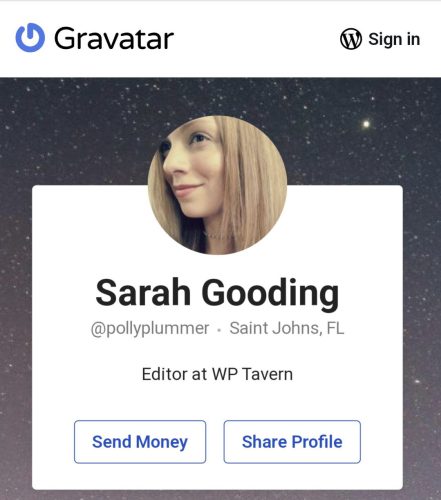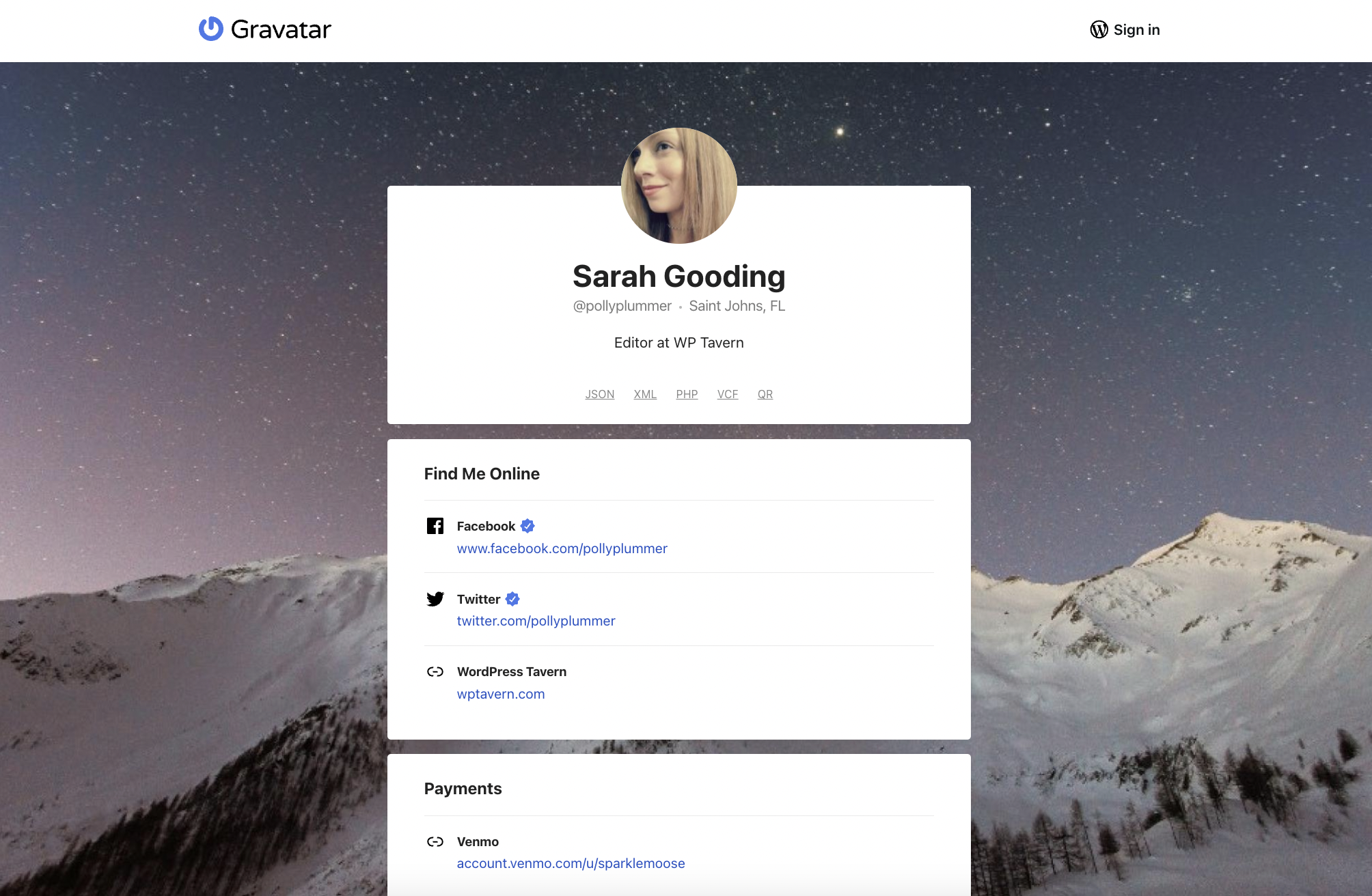Up until yesterday, the Gravatar (Globally Recognized Avatar) blog lay dormant for nine years, the last post chronicling how the team set out to create a Gravatar app that somehow “morphed into a Selfies app.” Communication went silent after that, although the Twitter account posted occasionally.
The service has pivoted to become “a personal digital business card” where users can link to various apps and websites that help to establish their identities online.
Gravatar announced this week that it has launched new payment features for profiles. Users have the option to add links for PayPal, Venmo, and Patreon. The Gravatar team is looking at adding Cash App and more providers in the future.
On mobile, profiles appear with new “Send Money” and “Share Profile” buttons. Each profile has its own unique QR code that can be copied and shared.

The payment accounts show up as links that visitors can click through. Users can also display links to cryptocurrency wallet addresses, including Bitcoin (BTC), Litecoin (LTC), Dogecoin (DOGE), Ethereum (ETH), XRP, and Cardano (ADA).
Profiles can be customized with a background image, photo gallery, social links, and links to verified services.

Gravatar is used by Slack, Atlassian (owner of Jira and Trello), GitHub, Stack Overflow, and Disqus, serving millions of requests per day. Another new major user is OpenAI, which displays users’ Gravatar images when chatting with ChatGPT. The service is also integrated with every WordPress install, and an Automattic representative confirmed there are no plans to change this.
Automattic reported that the company does not receive a cut of any payments passed through Gravatar links, nor does it have financial partnerships with any of the payment providers. The company also has no visibility into the transactions that happen through Gravatar payment links.
During the past nine years, the small Gravatar team has been improving how profile pages look, adding services that can be verified, working to improve the hashing and security of data, and maintaining the infrastructure required to store and serve so many images and profiles.
“We aren’t currently working on a Gravatar app, but it is something we are considering,” an Automattic representative told the Tavern.
After the Selfies app was retired, some of the code went into Jetpack and is now part of the app. Jetpack users can manage their Gravatar profile information and avatar photo inside the app.
